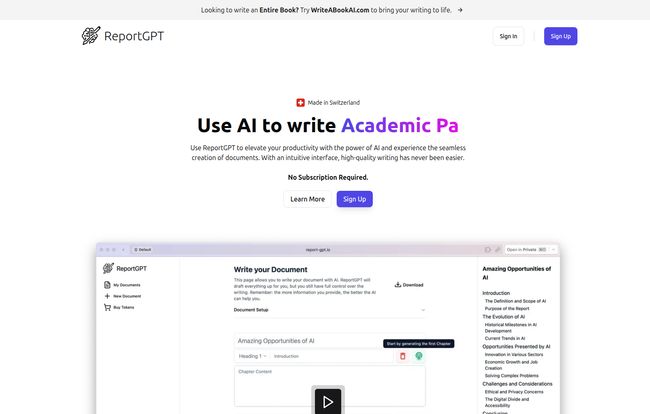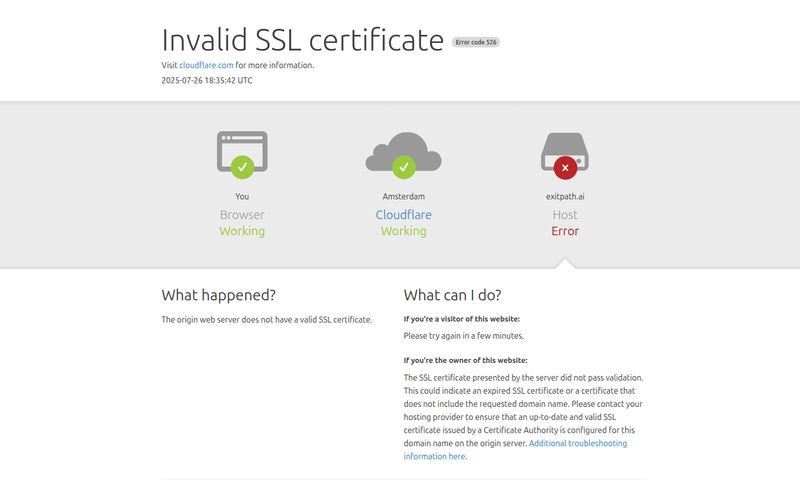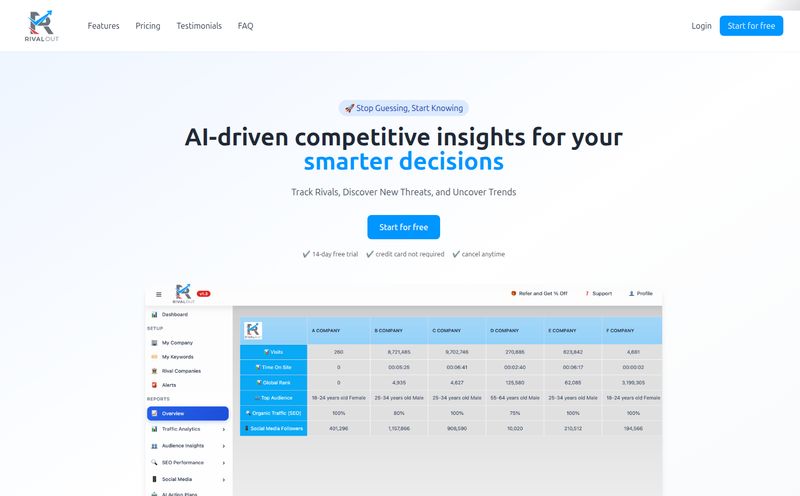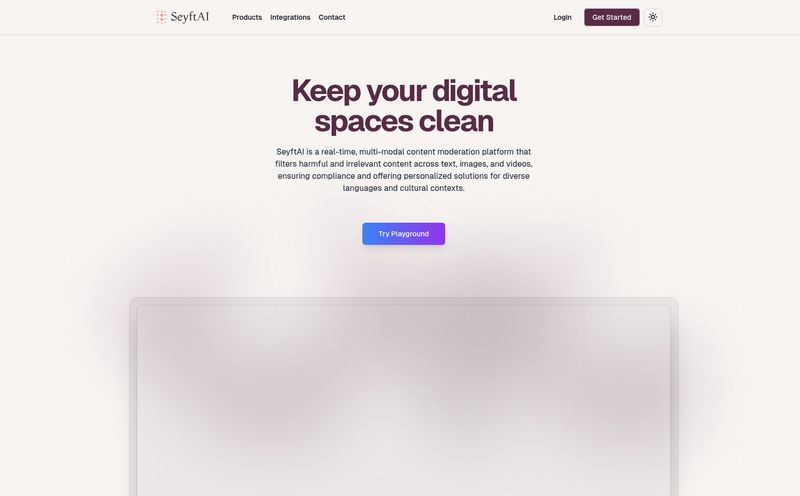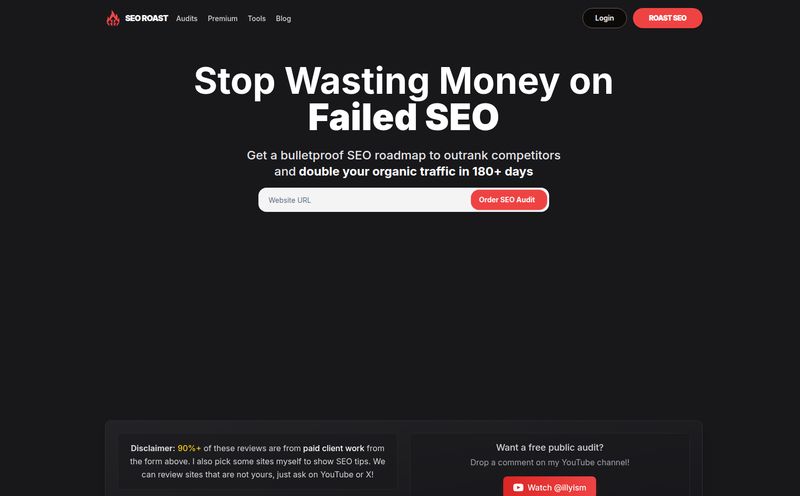Blank page syndrome. It's real. We’ve all been there, staring at that blinking cursor in a fresh Word document, the weight of a 20-page research paper or a quarterly business report pressing down on us like a physical thing. The pressure to just... start. It’s a creative hurdle that can feel insurmountable some days.
Then along came the AI revolution. Suddenly, we have a whole arsenal of tools promising to slay that dragon for us. And as someone who lives and breathes this stuff, I've tried a ton of them. A. Ton. Let's be honest, many feel like slightly smarter versions of that old 'autocomplete' feature, spitting out generic, soulless text. They're trying to be a Swiss Army knife and end up being a mediocre version of every tool.
So when I stumbled upon ReportGPT, my first thought was, “Here we go again.” But something felt different. The messaging wasn’t about creating a thousand blog posts in an hour. It was focused. It was about documents. Structured, serious documents. And frankly, that got my attention.
What Exactly is ReportGPT?
At its core, ReportGPT isn't just another chatbot you prompt into oblivion. Think of it more like a smart, AI-powered architect for your writing. It’s a platform designed specifically to take you from a vague idea to a fully-structured, well-written, and properly formatted document. We're talking research papers, case studies, business reports, and the like.
Instead of just giving you a wall of text, it guides you through a process: you start with an idea, it helps you build a logical outline, and then it generates the content for each section, step-by-step. You're still the director, but you've got a seriously efficient assistant doing the heavy lifting. It's built on an advanced language model (the good stuff, GPT-4), which means the quality of the prose is a cut above many of the tools still running on older tech.
The Features That Actually Matter
Okay, every tool has a feature list as long as your arm. But what are the parts of ReportGPT that actually make a difference in your workflow? I've been playing around with it, and a few things really stand out.
From Blank Page to Full Outline in Minutes
This is the first bit of magic. You give ReportGPT your topic, and it doesn't just start writing—it proposes a document structure. A logical flow of chapters and sub-sections. For anyone who struggles with organizing their thoughts (raises hand), this is a game-changer. You can then tweak, add, or remove sections to your heart's content. It’s like getting a smart template that kickstarts the entire project, saving you from that initial organizational paralysis.
The GPT-4 Writing Engine Under the Hood
The quality of AI-generated text can vary wildly. The secret sauce is almost always the underlying model. ReportGPT uses GPT-4, and you can tell. The writing is more coherent, the reasoning is more sound, and it's just... better. It’s the difference between a student film and a blockbuster production. The platform allows you to generate content for each chapter you've outlined, and you can refine it as you go. It feels less like a one-and-done generation and more like a collaborative writing process.
More Than Just Word Docs: Exporting for the Real World
Here’s something that made the academic corner of my brain light up. The export options. Of course, you have your standard Word and Markdown formats. But ReportGPT also supports LaTeX export. Finally! For anyone in research, science, or academia, you know how critical LaTeX is for typesetting complex documents and formulas. Seeing it supported here shows the developer actually understands their target audience. It's not just a feature; it's a sign of respect for the user's workflow.
Let's Talk Money: The ReportGPT Pricing Model
I swear, if I have to sign up for one more monthly subscription, I might just go live in a cabin in the woods. Subscription fatigue is real, and the SaaS world is saturated with it. This is where ReportGPT throws a delightful curveball.
There is no recurring subscription.
Let that sink in. You pay for what you need. It operates on a one-time payment model where you buy a certain number of “AI-Reports.” One report credit lets you generate one full document. It’s simple, transparent, and honestly, a breath of fresh air. And the best part? It's genuinely affordable, especially when you consider you're getting GPT-4 access.
| Plan | Price (One-Time) | What You Get |
|---|---|---|
| Free Demo | $0 | Try out the platform, generate structures and chapters. |
| 1 AI-Report | $3 | Generate one full document. |
| 5 AI-Reports | $10 | Generate five full documents. |
| 10 AI-Reports | $18 | Generate ten full documents. |
Plus, each pricing tier comes with a little emoji and the note to "Support an Indie Developer." I have a soft spot for that. You’re not just funding a massive corporation; you're buying a person a coffee (or a pizza!).
The Good, The Bad, and The... Fair Use Policy
No tool is perfect, right? So let's get into the nitty-gritty. The stuff you find when you read the fine print.
The good stuff is obvious. The workflow is fantastic, the GPT-4 output is high-quality, the pricing is a dream, and the developer's focus on a specific need is commendable. The built-in AI Content Detection is also a nice touch, helping you ensure your work is original.
Now, for the reality check. In the Terms of Service, there's a Fair Use Policy. This means that while you have unlimited chapter generations within a report, if you go absolutely wild and try to generate a 500-page novel, they might gently tap you on the shoulder. This is pretty standard for preventing abuse and keeping costs down for an indie dev, but it's important to know it's not a truly infinite content machine. For 99% of users writing standard reports, this will never be an issue. It also mentions that service interruptions can happen, which is an honest admission you dont always see.
Who is ReportGPT Actually For?
I've been thinking about this. Who gets the most out of this tool?
- Students & Academics: Absolutely. The structured approach, the quality of the writing for complex topics, and that sweet, sweet LaTeX export make it a perfect companion for term papers, theses, and research articles.
- Business Professionals: Without a doubt. Need to draft a comprehensive market analysis, a case study for a client, or a quarterly business report? This will get you from zero to a professional first draft in record time.
Who is it not for? Probably not the best fit for social media managers or copywriters who need short, snappy content. Its strength is in long-form, structured documents. It’s also not for the “black hat” SEO crowd trying to pump out hundreds of low-quality articles a day. This is a tool for thoughtful, high-quality work.
Frequently Asked Questions about ReportGPT
- Is ReportGPT free to try?
- Yes! There's a Free Demo Document that lets you get a feel for the platform, generate structures, and even some chapters before you commit to paying anything.
- What AI model does ReportGPT use?
- It uses GPT-4, which is currently one of the most advanced and capable language models available to the public. This contributes to the high quality of the generated text.
- Is this a monthly subscription?
- Nope! And it's one of its best features. ReportGPT uses a one-time payment model where you buy credits for a specific number of reports. No hidden fees or recurring charges.
- Can I use it for things other than academic papers?
- Definitely. It's well-suited for any kind of structured document, including business reports, detailed product reviews, case studies, and technical documentation.
- What happens if I generate a massive amount of content?
- The platform has a Fair Use Policy in place. For normal document creation, you'll be fine. The policy is there to prevent system abuse, ensuring the service remains stable and affordable for everyone.
- What are the export options again?
- You can export your final document as a Microsoft Word file, a Markdown file, or a LaTeX file, which is a huge plus for academic and technical writers.
My Final Verdict
After spending some quality time with ReportGPT, I can say it's earned a spot in my personal toolkit. It’s a focused, powerful, and refreshingly honest tool. It knows exactly what it is: an assistant for creating high-quality, structured documents. It doesn't try to be anything else.
The combination of a clean, guided workflow, the power of GPT-4, and a pricing model that respects my wallet is a winning formula. It’s the perfect antidote to both blank page syndrome and subscription fatigue. If you write any kind of long-form reports or papers, you owe it to yourself to at least give the free demo a shot. You might be surprised at how much smoother your next writing project can be.
Reference and Sources
- ReportGPT Official Website
- ReportGPT Terms of Service
- There's An AI For That
- OpenAI's GPT-4 Research Page
